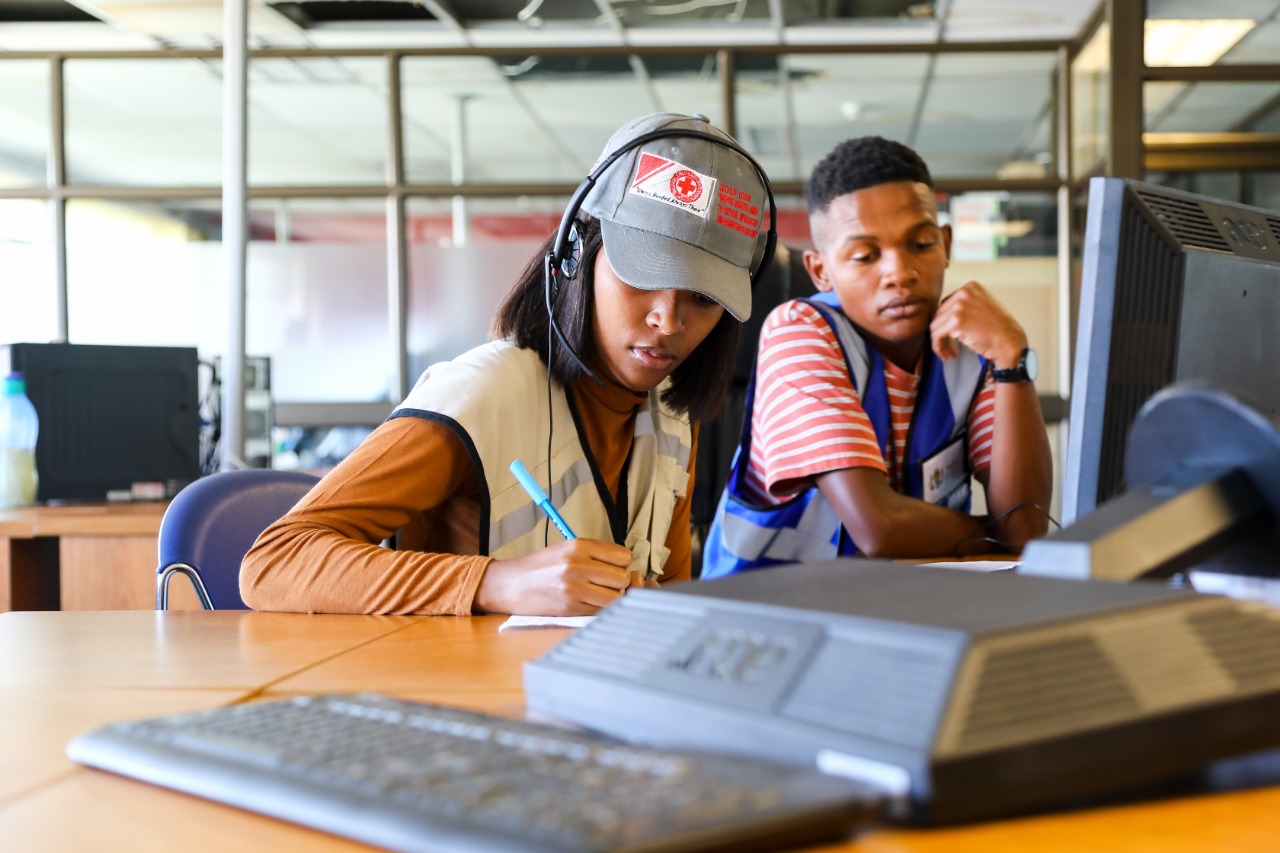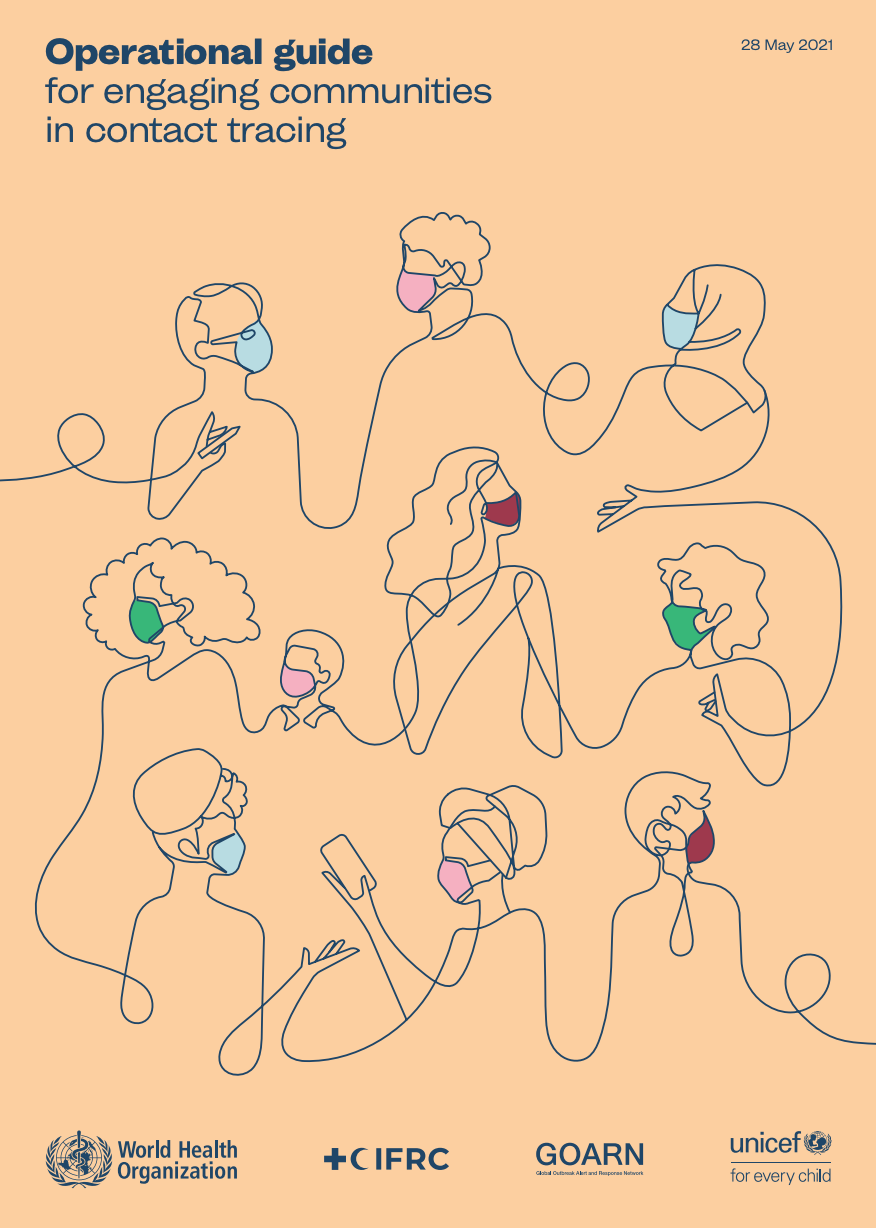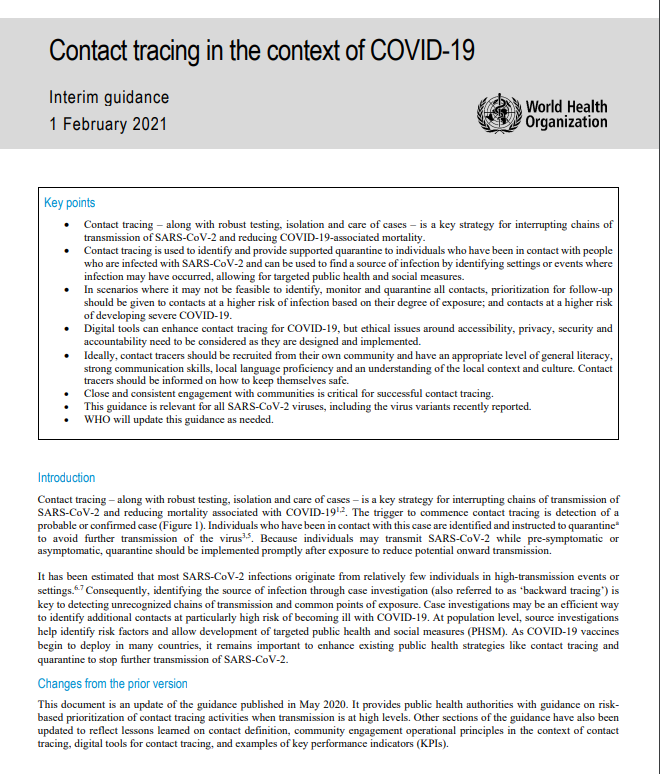Contact Tracing
Contact Tracing Subgroup
THE WORKING GROUP
Contact tracing has become a vital tool in stopping infectious diseases. It is clear that using it effectively requires close and consistent engagement with local communities.
While community members can play an important role within contact tracing teams, they can also promote broader sensitization and help define and deliver tracing methodologies and channels of communication.
Evidence from previous contact tracing efforts shows that community trust is critical to the success of contact tracing. This is especially important for marginalized people, particularly in conflict or post-conflict settings, or in settings with large refugee or migrant populations. Community ownership and active participation is central to successfully implement contact tracing, reducing transmission for COVID-19 and saving lives.

OBJECTIVES
Knowledge Management
Map existing strategies, guidance, materials and tools for RCCE in the context of COVID-19 and other diseases that require contact tracing as a central component of transmission prevention.
Standardization
Establish best practice principles and terms of reference for program planners and implementers.
Capacity Building
Support the development of community engagement training packages for the use of digital tools, feeding into broader contact tracing packages.
KEY DOCUMENTS

Operational Guide
Operational guide for engaging communities in contact tracing (WHO)

Guidance
Contact tracing in the context of COVID-19 (WHO)

RCCE interim guidance
Risk communication and community engagement for COVID-19 contact tracing: interim guidance (WHO Europe)

